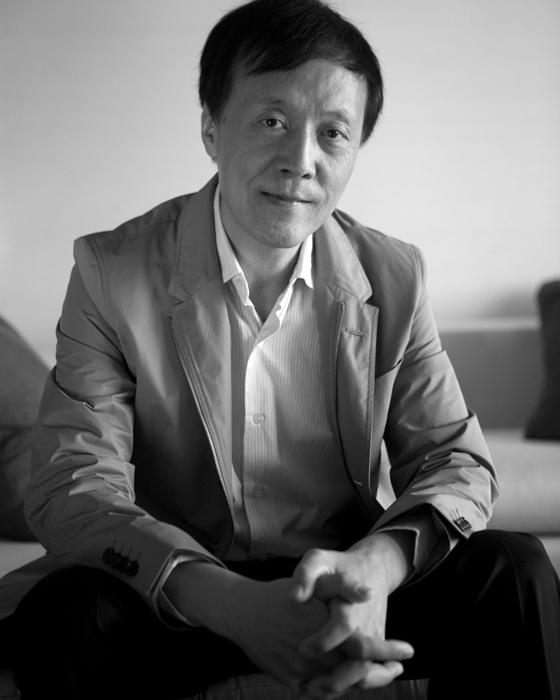
Li Rui
Li Rui (April 13, 1917 - February 16, 2019) was a CCP history expert and former secretary of Mao Zedong. Li graduated from high school in 1934 and was admitted to the Mechanical Department of the School of Engineering at the National Wuhan University in the same year. From 1936, Li became involved in a secret student group in Wuhan, which was affiliated with the CCP, before leaving Wuhan University in May 1937 to join the CCP, and worked on publicity. Between 1948 and 1949, he served as a political secretary to the CCP leaders Gao Gang and Chen Yun. From August 1949, Li served as editor-in-chief of the New Hunan newspaper and as propaganda minister of Hunan Province. In 1952, he was transferred to Beijing as director of the General Bureau of Water and Electricity Construction, and in 1958 he was appointed a correspondence secretary between Mao Zedong and the Ministry of Water Resources. That same year, he became vice-minister of the Ministry of Water Resources and Electricity.
In 1959, Li was labeled a Right Opportunist for questioning the Great Leap Forward, and was dismissed from the Party in March 1960, and exiled to a labor camp in northeastern China, before being transferred back to Beijing at the end of 1961. In 1967, Li was sent to Qincheng Prison and jailed in isolation for eight years for reporting on one of the leaders of the Cultural Revolution, Chen Boda. In 1979, Li was rehabilitated and became secretary of the Ministry of Electric Power Industry. From 1982 to 1984, he served as executive vice minister of the Organization Department of the CCP and director of the Young Cadres Bureau, and later as head of a leading group on CCP history, in charge of compilation of CCP’s organizational history. He retired in June 1995. Li passed away on Feb. 16, 2019 in Beijing due to illnesses.
Li published more than 30 books, some of which were on water resources, including *On the Three Gorges Project*. Li was an opponent of the Three Gorges Project, and in his article "*Accountable to History: Memories of the Launching of the Three Gorges Project*", Li discussed in detail the decision-making process of the project, as well as its potential social, economic, and ecological impacts. Li is the author of several books on CCP history, including *Records of the Lushan Conference*, *The Great Leap Forward: An Intimate Memoir*, and *Mao Zedong's Merits and Wrongs*. In addition, he was a supporter of the reformist magazine *Yanhuang Chunqiu (China through the Ages)*, where he served as an advisor and published dozens of articles.

Liu Xiaobo
Liu Xiaobo (December 28, 1955 - July 13, 2017) was a writer, literary critic, human rights activist, and 2010 Nobel Peace Prize laureate.
Liu was a native of Changchun, Jilin Province. After graduating from high school in 1974, Liu went to work as a farmer in a rural commune in Nong'an County, Jilin Province as a send-down youth, and was recruited as a plasterer by the Changchun Construction Company in 1976. In 1977, Liu was admitted to the Department of Chinese Language and Literature at Jilin University, where he graduated with a B.A. in 1982. He was then enrolled in the Department of Chinese Language and Literature at Beijing Normal University, where he received his M.A. and Ph.D., and was appointed as a lecturer in the department. Liu began publishing essays on literature, aesthetics, and politics when he was studying for his master's degree, and published several books, including *The Critique of Choice: Dialogue with Li Zehou*, *Contemporary Politics and Intellectuals of China*, and *The Future of Free China Exists in Civil Society*.
During the 1989 democracy movement, Liu was involved in publicizing, writing, speaking, fundraising for the protests, and gained the trust of the students by participating in the hunger strike, which allowed him to negotiate with the army on June 4 and convinced the students to evacuate. Liu was arrested and accused by the official media of being one of the "black hands" behind the movement, and was fired from his job that same year; in January 1991 Liu was convicted of counter-revolutionary propaganda and incitement but was exempted from criminal punishment for persuading students to evacuate the Tiananmen Square.
Since then Liu worked as a freelance writer in Beijing and engaged in human rights activities, for which he was subjected to punishments such as re-education through labor. In December 2008, Liu participated in the drafting and publicizing of Charter 08. He was convicted of inciting subversion of state power the following year and sentenced to 11 years in prison.
In 2010, Liu was awarded the Nobel Peace Prize while in prison, making him the first Chinese citizen to receive the prize. In June 2017, Liu was granted medical parole after being diagnosed with advanced liver cancer; on July 13, the hospital announced that Liu's condition had deteriorated and he had passed away on the same day.
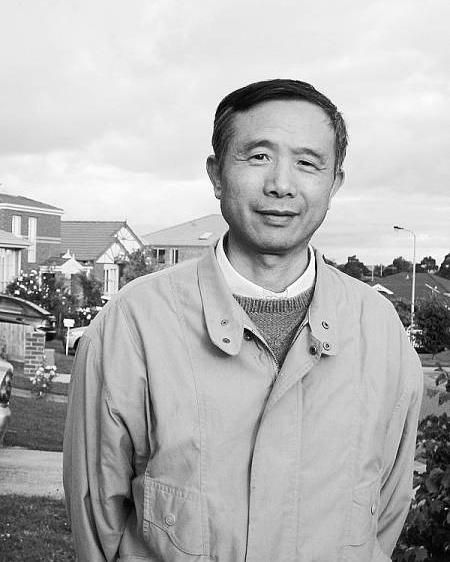
Yang Xiaokai
Yang Xiaokai (October 6, 1948 - July 7, 2004), also known as Yang Xiguang, was an economist. Yang was born in Dunhua, Jilin Province and grew up in Changsha, Hunan Province. Yang's father was a senior CCP cadre in Hunan, who was labeled a Rightist Opportunist for his support of Peng Dehuai, the defense minister, who was dismissed for pointing out the failures of the Great Leap Forward. Yang was rehabilitated in 1962. When the Cultural Revolution broke out, Yang's parents were labeled Counterrevolutionaries, and Yang, who was in high school, became a child of one of the "Five Black Categories," which formed what was essentially a permanent underclass in Mao's China (the others were landlords, rich farmers, counter-revolutionaries, and bad elements). Yang then joined the Rebel Faction of Red Guards. In 1968, Yang wrote a Dazibao (big-character poster) entitled "*Where is China Going?* ", where he criticized China's privileged bureaucratic class, and advocated the establishment of a Paris Commune-style government. As a result, Yang was detained in a detention center for more than a year, and was then sentenced to ten years' imprisonment for counterrevolutionary crimes in 1969, and was exiled to work in a labor camp in Hunan province until he was released in early 1978. Yang later wrote a book about his experiences during these ten years entitled *Captive Spirits: Prisoners of the Cultural Revolution*.
Inspired by Marx’s *Capital*, which Yang read in the detention center, he decided to become an economist and taught himself economics in prison. After his release in 1978, he was admitted to the Institute of Economics of the Chinese Academy of Social Sciences and received a master's degree in econometrics. In 1982, he was employed as a lecturer at Wuhan University. In 1983, the High People’s Court of Hunan Province announced that the counterrevolutionary conviction of Yang had been annulled. In the same year, Yang went to Princeton University and received his Ph.D. in economics in 1988. In 1990, Yang was appointed as a tenured professor at Monash University in Australia. In 1993, he was elected as a fellow of the Australian Academy of Social Sciences. He died on July 7, 2004, at his home in Melbourne, Australia, due to illness.
Yang's achievements in economics include the development of inframarginal economics and the new classical economics, and he was nominated for the Nobel Prize in Economics twice, in 2002 and 2003.
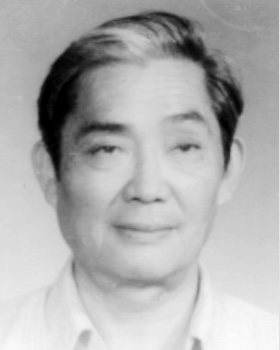
He Jiadong
He Jiadong (September 1932 - October 16, 2006) was a writer and publisher. In 1938 he joined the Nationalist government army to fight for China against Japan. In 1945, he joined the Chinese Communist Party. In 1949, he founded the Workers' Publishing House and served as manager, editor, and reporter for *Workers' Daily*, an official party organ of the Chinese labor movement.
In 1957, He was labeled a Rightist, expelled from the Party, and dismissed from his post because he published Liu Binyan's novel *The Inside Story of Our Newspaper*, which criticized CCP’s press control and was later declared to be anti-party. In 1965, He was exiled to Chenwu County, Shandong Province, where he labored for 14 years. In 1979, he was rehabilitated and became executive vice president and deputy editor-in-chief of the Workers' Publishing House. In 1983, he founded the monthly *Ren Sheng (Life)* magazine; in 1984, he founded and became editor-in-chief of the literary magazine *Kai Tuo (Pioneer)*. He, however, was punished for publishing in the inaugural issue Liu Binyan’s *"A Second Kind of Loyalty"*, a reportage literature work about those who dared to confront the authorities. He resigned and retired in 1985. In the same year, he was invited to serve as president of the China Administrative Management Correspondence University, and in 1987 became an advisor to the Beijing Institute of Social and Economic Sciences. In 1988, the Institute took over the *Economics Weekly* and He served as editor-in-chief. During the 1989 democracy movement, the newspaper reported on the movement and published a number of commentaries. On June 11 of the same year, the newspaper was shut down. He died on October 16, 2006, in Beijing due to illness.
In his later years, He wrote extensively promoting liberal ideas and advocating the introduction of political reforms and the establishment of constitutional democracy in China. However, due to censorship by the authorities, his freedom of publication was severely restricted. He's last wish was to have his collected works printed and given to friends and family, but the printed books were seized by the Chinese authorities, and Ding Dong, the scholar who coordinated the publication of the book, was summoned by the police the day after He's death. *The Collected Works of He Jiadong* was later published in Hong Kong by Fellow Press of America.

Luo Huilan
Luo Huilan (1952-), a native of Nanchang, Jiangxi Province, has been engaged in the research of CCP party history and party building since the 1970s, and served as a professor at the Jiangxi Provincial Party School, the vice president of the Jiangxi Modern Chinese History Society, and the deputy secretary-general of the Chinese Society of History of Communist Party of China.
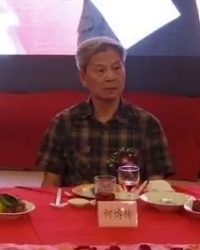
He Bochuan
He Bozhuan , a native of Guangzhou, graduated from the Mathematics Department of Guangdong Normal University in 1962, and participated in the development of China's first generation of computers as a student. He taught in a middle school after the end of the Cultural Revolution, and was later transferred to teach at the Department of Philosophy at Sun Yat-sen University. In 1989, he published <i>China on the Edge: The Crisis of Ecology and Development</i>, a book that describes the crises that China is likely to face in the future. The book was recommended by Sanlian Bookstore in 2005 as one of the books that had the greatest impact on China in the last 20 years.
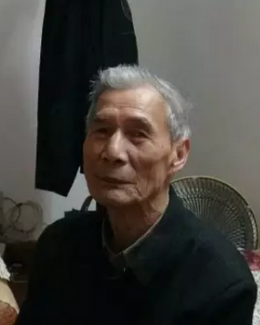
Xiang Chengjian
Xiang Chengjian (January 19, 1939) was born in Wuning, Jiangxi province, with ancestral roots in Guangshan County, Henan.
He experienced extreme poverty as a child, recounting in his memoir that he had to beg for food and that his family lived in a thatched hut. His mother died when Xiang was young and his father was a laborer with little formal education. His family was classified as poor peasants, but he had consistently excellent grades in school.
In 1956, he was admitted to the Department of Chemistry of Lanzhou University. He participated in the “mingfang” movement, when students were encouraged to critique the party. He was elected to the university’s Mingfang Committee and compiled criticisms of the administration, including how professors were victimized in previous political campaigns.
He was labeled a Rightist in 1957 for his participation in the Mingfang movement, as well as for making an offhand comment criticizing a big-character poster.He was exiled to Tianshui, Gansu Province for re-education through labor in 1958.
During the Great Famine, he and other exiled students founded the underground publication Spark. He was one of the magazine’s core members, along with Zhang Chunyuan, Gu Yan, and Miao Qingjiu. He was a key writer for the journal, including pieces such as:
--《自白》 (Confession), a personal declaration of opposition to the Communist government;
--《目前形势与我们的任务》 (The Current Situation and Our Mission), a political analysis urging resistance;
--《九个指头与一个指头》 (Nine Fingers and One Finger), critique of Mao Zedong’s rhetoric about focusing on achievements over mistakes.
In “Letter to the People,” Xiang wrote:
<i>When millions, tens of millions of farmers starve to death on their beds, on trains, by railroads, at the bottom of a ditch, when hundreds of millions (400 million) people are dying of starvation, when the other 200 million are half-starved. When they are full, those animals who “wholeheartedly” serve the people and are “people’s servants” can buy any snacks, biscuits, candies. . . . They feasted and walked away (who would dare to ask them for food stamps), and as soon as they arrived, the meal was served. </i>
Xiang also decried the moral relativism of China’s top leaders. Decades before Mao’s private doctor shocked the world with his tales of Mao’s sex with young women, Xiang pointed out the hypocrisy of the older men who led China. While appealing to steadfastness and loyalty, they had taken up with younger women, casting aside their wives who had suffered with them while they were fighting for the revolution. Even worse, information had come to light during the Anti-Rightist Campaign showing that many officials freely took the daughters and wives of persecuted families.
Xiang was also directly involved in manually carving the printing blocks for the first issue of <i>Spark</i> along with Miao Qingjiu. They worked in a secret location at night, using an old duplicating machine left from an abandoned factory.
He was arrested in September 1960. After over a year of solitary confinement, he was convicted in July 1962 in Wushan County as a "counterrevolutionary" and sentenced to 18 years in prison. He served time in Gansu Province's Third Prison, Lanzhou Brick and Tile Factory, and several forced labor camps, including those in Yumen (Gansu) and Delingha (Qinghai Province). During this period, he endured hard labor, poor conditions, and political persecution.
In his memoir, he describes the travails that he and other youth experienced between 1957-60, his nearly two decades in prison, when he witnessed violence and executions, and his release and rehabilitation.
Xiang was released from prison in September 1978 but was forced to keep teaching in a labor camp school. His case was only overturned in 1981, allowing him to return to Lanzhou, where he became a teacher at the Lanzhou Liancheng Aluminum Factory Middle School.
In 1984, Lanzhou University issued him a retroactive bachelor's degree, and he rose to become a senior high school teacher, later serving as a vice principal and principal.
He later retired from teaching in 1998 and began writing his autobiography, completing <i>Return of the Soul from Purgatory</i>, a volume of 370,000 characters.
In 2014, he completed his second book, <i>Dissent and Reflections on Marxism</i>, which has been published in Hong Kong.
In 2016 he was interviewed by the Chinese journalist Jiang Xue and is the main character in a 40-minute film that Jiang Xue made along with the citizen videographer <a href="http://108.160.154.72/s/china-unofficial/item/220">Zhang Shihe (Tiger Temple)</a>.
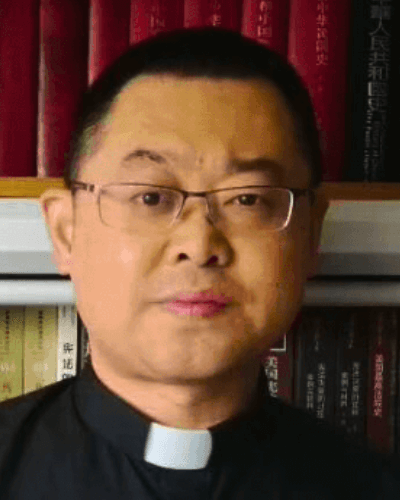
Wang Yi
Wang Yi (1 June 1973—) is the founding pastor of the Early Rain Covenant Church in Chengdu, China. He is also a writer, poet, and scholar.
Wang Yi was born in Santai County to a high school language teacher and enterprise manager. He attended Santai Middle School and was profoundly affected by the 1989 Tiananmen Square protests.
In 1992, he began dating Jiang Rong, whom he had known from kindergarten. That year, Jiang enrolled in Chongqing University’s Foreign Language Department, while Wang Yi entered the Law School at Sichuan University. During college, Wang Yi and Jiang Rong wrote more than eight hundred letters to each other. The two married in 1997.
In 2001, he was appointed as the moderator of the “Guantian Teahouse” section on Tianya Forum, with scholars like Liu Junning, He Weifang, and Xiao Shu as active members. The next year, he launched the website “Constitutional Perspectives,” focusing on constitutional theory and China’s constitutional transformation.
In 2004, he and his wife began exploring Christianity and he began supporting cases of house church activists. He was listed by the influential magazine <i>Southern People Weekly</i> as one of “50 Public Intellectuals Influencing China.”
In 2005, Wang was baptized and later became the senior pastor of the Early Rain Covenant Church in Chengdu. Just a few months later, he was selected to <a href=“https://georgewbush-whitehouse.archives.gov/news/releases/2006/05/images/20060511-1_d-0269-515h.html”>meet President George W. Bush</a> at the White House as part of a program to reach out to Chinese Christians.
As an independent house church, the church was regularly suppressed but thrived in the 2000s and 2010s. At its peak it had more than 500 members and networked with other big urban churches in other major Chinese cities. Independent of government control, Early Rain set up a seminary, an elementary school and even a group to aid the families of political prisoners.
In 2018, however, Wang emerged as a critic of Xi Jinping. In his most outspoken sermon, <a href=“https://www.youtube.com/watch?v=eWuv55YgKjY”>he declared</a>: “If Xi Jinping does not repent, he will perish!”
On December 9, 2018, Wang and hundreds of Christians from the church, including his wife Jiang Rong, were arrested by the police, and the church was subsequently banned by the government. Jiang was later released and reportedly lives quietly with the couple’s son, Wang Shuya, in a suburb of Chengdu. The church remains closed but individual members curate a <a href=“https://zh-cn.facebook.com/earlyraincovenantchurch/”>Facebook page</a>. It also has <a href =“https://www.youtube.com/channel/UCn7IF7YEKrgKi0LaCsX8YCg/videos”>a YouTube page</a> with hundreds of videos, including many of Wang’s sermons.
On December 30, 2019, the Chengdu Intermediate People's Court in Sichuan Province announced that Wang was sentenced to nine years' imprisonment for the crimes of inciting subversion of state power and illegal business operation. <a href=“https://www.uscirf.gov/religious-prisoners-conscience/forb-victims-database/wang-yi”>Reports </a>say he is being held in Jintang Prison, Chengdu.
Wang has published more than a dozen books including legal treatises, research on Christianity and Chinese house churches, as well as collections of poetry and essays, such as <i>On Constitutionalism, Classical Christian Education</i>, and <i>Carrying the Cross: A History of Chinese Family Churches.</i>
Sensing his pending detention, on Oct. 4, 2018, Wang wrote <a href=“https://chinachange.org/2018/12/24/my-declaration-the-faith-of-disobedience/”>a manifesto entitled “The Faith of Disobedience.”</a> As per Wang’s instructions, the church published it 48 hours after his detention. In the essay, Wang argued that it was not his job to change society, but as a Christian it was his duty to speak out against evil:
<i>I accept and respect the CCP’s political power as a temporary state allowed by God. As the Lord’s servant John Calvin said, a tyrant comes as God’s punishment for the wicked, with the purpose being to urge the people of God to repent. For this, I am willing to physically obey the rules of their law enforcement as a form of discipline and ordeal from the Lord.
At the same time, I must make it clear that the Communist regime’s persecution of the church is a heinous crime. As a pastor of the Christian church, I must resolutely and publicly condemn these sins. My calling also requires me to transgress all human laws, albeit nonviolently, that violate the Bible and God’s commandments. Christ, my Savior, also asks me to joyfully bear all the consequences that come with the transgression of these evil laws.</i>
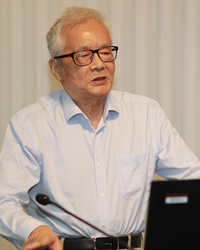
Gu Yan
Gu Yan (b. 1935), a native of Shanghai, was admitted to the Physics Department of Peking University in 1952, and after graduating in 1956, he went to the Physics Department of Lanzhou University for postgraduate studies. In 1957, he was labeled a Rightist, and was exiled to Tianshui, Gansu Province for re-education through labor. During the Great Famine, he and other exiled students decided to publish an underground magazine, which, at his suggestion, was named “Spark.” He wrote the lead article for the first issue of Spark, "Give up Illusions and Prepare for Battle!” This denounced the CCP rule of the time as "national socialism monopolized by oligarchs" and "the same as the Nazi national socialism with nothing in common with true socialism." He was arrested in October 1960 and sentenced to 17 years in prison in 1965 as the principal offender in the "Spark Counter Revolutionary Group Case". In 1974, his sentence was reduced by three years for a technological invention he made in prison, and he was assigned to work at a prison factory. After he was rehabilitated in 1980, he worked as a lecturer at Lanzhou University, and in 1983 he worked as a visiting scholar at Drexel University in Philadelphia, United States. After returning to China in 1984, he was appointed as a visiting researcher at the Institute of Theoretical Physics of the Chinese Academy of Sciences. In 1985, he was appointed professor and doctoral supervisor at Lanzhou University. At the end of 1991, he was transferred to teach at the University of Science and Technology of China, and continued his research in theoretical physics after his retirement in 2000. His achievements in the field of nonlinear physics are widely recognized.




